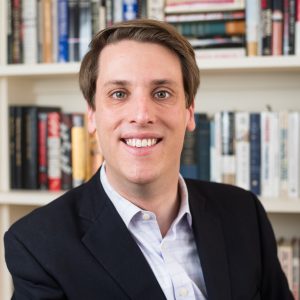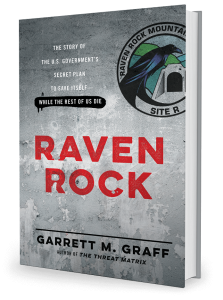If it’s Christmas, it’s time for my annual list of the best books I read this year. I read a lot of good books this year, so there’s some cheating in this list to allow me to mention more books than the traditional ten.
1. The Passage by Justin Cronin :: This was simply one of the best books I’ve ever read. It’s a literary post-apocalypse vampire story—which sounds like any of a score of books out in recent years, but having read many of those as well, this one stands above all others. It’s a sweeping, massive tale—the kind where the first two hundred pages are just an interlude before the real story begins—but every bit a masterpiece. I was lucky enough to be given an advance copy by a friend at the publisher and devoured it; when it actually came out, I probably gave a dozen copies away to friends. It’s the first of a trilogy and the only shame of this book is that the next two installments are years off.
2. Max Perkins by A. Scott Berg :: Berg’s National Book Award-winning portrait of Scribners’ editor Max Perkins, who edited Hemingway, Wolfe, Lardner, and the Fitzgeralds, among many others, is one of the best books on writing I’ve ever come across. My Washingtonian predecessor gave me the book as a present as I took over the magazine and it taught me enormously how to think about my job as editor. The other book on writing that stood out this year is Tom Grimes’s Mentor, about writing his first novel and his relationship with his mentor, the novelist and Iowa Writing Workshop god Frank Conroy.
3. Agents of Innocence by David Ignatius :: I became a serious reader of Ignatius novels this year and found that this one captured espionage especially well, the emotions, the scenes, the challenging motives and practices. It’s one of the best spy books I’ve ever found.
4. Hitch-22 by Christopher Hitchens :: I’ve always enjoyed Hitchens writing (his God is Not Great was on my 2008 list) and his memoir this year was a real tour-de-force of Hitchens.
5. Gates of Fire by Steven Pressfield :: Pressfield has made a career out of writing fictional novels out of major military historical moments. This telling of the Spartan 300 and the battle of Thermopylae stands as one of the best stories of men at war—and specifically what makes men fight. I came across because it’s part of the recommended reading list for Marine officers and after reading it can absolutely see how it’s critical for thinking about leading men into battle. Two other books on men at war that really stood out this year were Karl Marlantes’s Matterhorn, an epic Vietnam novel which I read while at Peacham this summer, and Rick Atkinson’s Day of Battle, the second volume in his nonfiction World War II “Liberation Trilogy,” which focuses on the Allies’ Italy and Sicily campaigns.
6. The Bridge by David Remnick :: I’ve been reading all of the Obama campaign books as they’ve come out and almost didn’t pick this one up, figuring I’d read about everything on the campaign that I cared to read. I’m glad I did. One of my great frustrations with all of the other works that Campaign 2008 generated is that they’re all compared in importance to Making of the President 1960 by people who evidently have never read the old Teddy White series. Teddy White’s series succeeded because they taught you not just about the campaign but about America at the time. His digressions about the inner city, the plight of blacks, the economy, and foreign affairs were what made those books wonderful. The books weren’t about the candidates per se, they were about the campaigns and the context in the country. Remnick managed to do the same, actually teaching us about America and Barack Obama’s place in it as he tells the story. Not much of the book actually ends up being about Obama himself, which, to my mind, is the sign of a truly exceptional biography. The other biography I read this year that stands out is Secrecy and Power: The Life of J. Edgar Hoover by Richard Gid Powers, which I read as I finished my own FBI book after realizing that I hadn’t really spent a lot of time researching Hoover himself, who is a bit character in my book but whose influence very much continues to shape the Bureau today.
7. Union Atlantic by Adam Haslett :: This is one of the first financial collapse novels, focusing on a banker, a government official, and the official’s sister. I found the opening especially interesting and a model that I hope to emulate someday.
8. The Alienist by Caleb Carr :: A gift from a friend, this book tells the fictional story of Teddy Roosevelt’s pursuit of a serial killer in turn-of-the-century New York with the first beginnings of criminal profiling. It’s a great tale, with lots of famous historical characters wrapped up in it, including J.P. Morgan himself.
9. Random Family: Love, Drugs, Trouble, and Coming of Age in the Bronx by Adrian Nicole LeBlanc :: This was another gift from a friend and turned out to be the most intense, heart-rending, and thoroughly-researched books I’ve come across in a while. The story of a caring and dysfunctional family on the edge of poverty, illness, crime, and employment, it shows just how hard the American Dream can be to achieve.
10. The Watchers by Shane Harris :: My friend and colleague at Washingtonian wrote one of the definitive books of the post-9/11 world, focusing on Admiral John Poindexter’s twenty-year journey to help the nation fight terrorism using new technology. It’s in a certain way the biography of the surveillance state and America’s general tension between security and civil liberties.
Honorable mentions this year go to two novels I really enjoyed reading: Gary Shteyngart’s appallingly-possibly-prescient Super Sad True Love Story, and the literary thriller The Same River Twice by Ted Mooney, which had some really colorful details that made the story come alive.
[Check here for my past lists: 2009, 2008, 2007, 2006, 2005, and 2004.]


Recent Comments